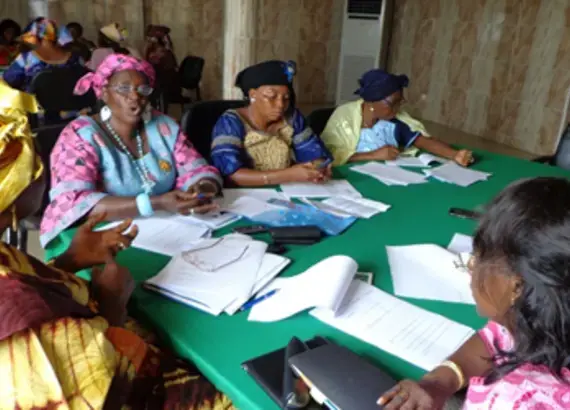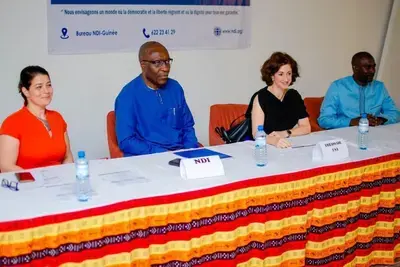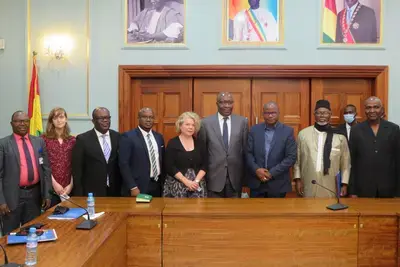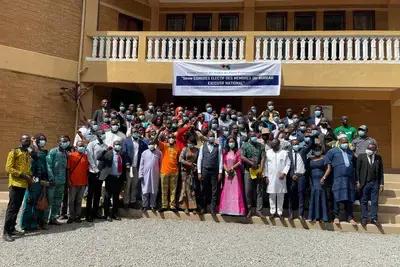
Success Story
Guinea Wins with Women
Guinea’s legislative elections last year were the first competitive, multiparty polls for seats in the National Assembly since the country gained independence in 1958. New polls were scheduled for 2011, six months after the election of Alpha Condé, the first democratically elected president in 52 years, but debate and confusion between the government and opposition parties over electoral reforms delayed them for three years.
While the elections represented a major milestone, there were few gains for the country’s women. Guinea’s electoral law requires party lists to have 30 percent women candidates, but there are no penalties for political parties that don’t comply. Five competing parties did not reach the quota. Twenty-five women won seats, giving them 21 percent representation. Currently, Guinea’s government includes only five female ministers out of 35.
To help women overcome these barriers, women from six political parties and two NDI partners—the Consultation Framework of Women and Girls of Political Parties (Cadre de Concertation des Filles/Femmes des Partis Politiques de Guinee, CCFPPG) and the National Political Party Youth Forum in Guinea (Forum National des Jeunes des Partis Politiques en Guinee, FONAJEP)—came together in the capital, Conakry, in June to work on how to increase the number of women candidates.
They used an NDI tool called the “Win With Women Political Party Assessment,” which aims to boost women’s involvement, support and meaningful participation in political parties. It has been used recently in the Democratic Republic of Congo, South Africa, Kosovo and Burkina Faso, where the tool helped four political parties assess progress they had made in including women during 2012 elections. One party established a designated space in its headquarters for women to use for meetings, while another established women’s wings in all local party branches.
At the two-day Conakry meeting, the Guinean women said they believed strongly in party loyalty, but said they had little influence in party decision making, whether about spending, establishing community priorities or nominating someone for a position. And they talked about the difficulty of getting nominated for a leadership position, a process for which there are almost no rules in some political parties.
The training covered the role of women in political parties and the importance of parties giving women the opportunity to participate. Those at the meeting identified challenges, highlighting the lack of training provided by parties as well as more complex issues of internal and structural barriers. The women identified strategies to promote women within their parties and the government, such as putting women high enough on candidate lists to allow them to be elected and offering training for women in local languages.
NDI's program in Guinea is supported by USAID.
Read more:
Published Sept. 5, 2014



